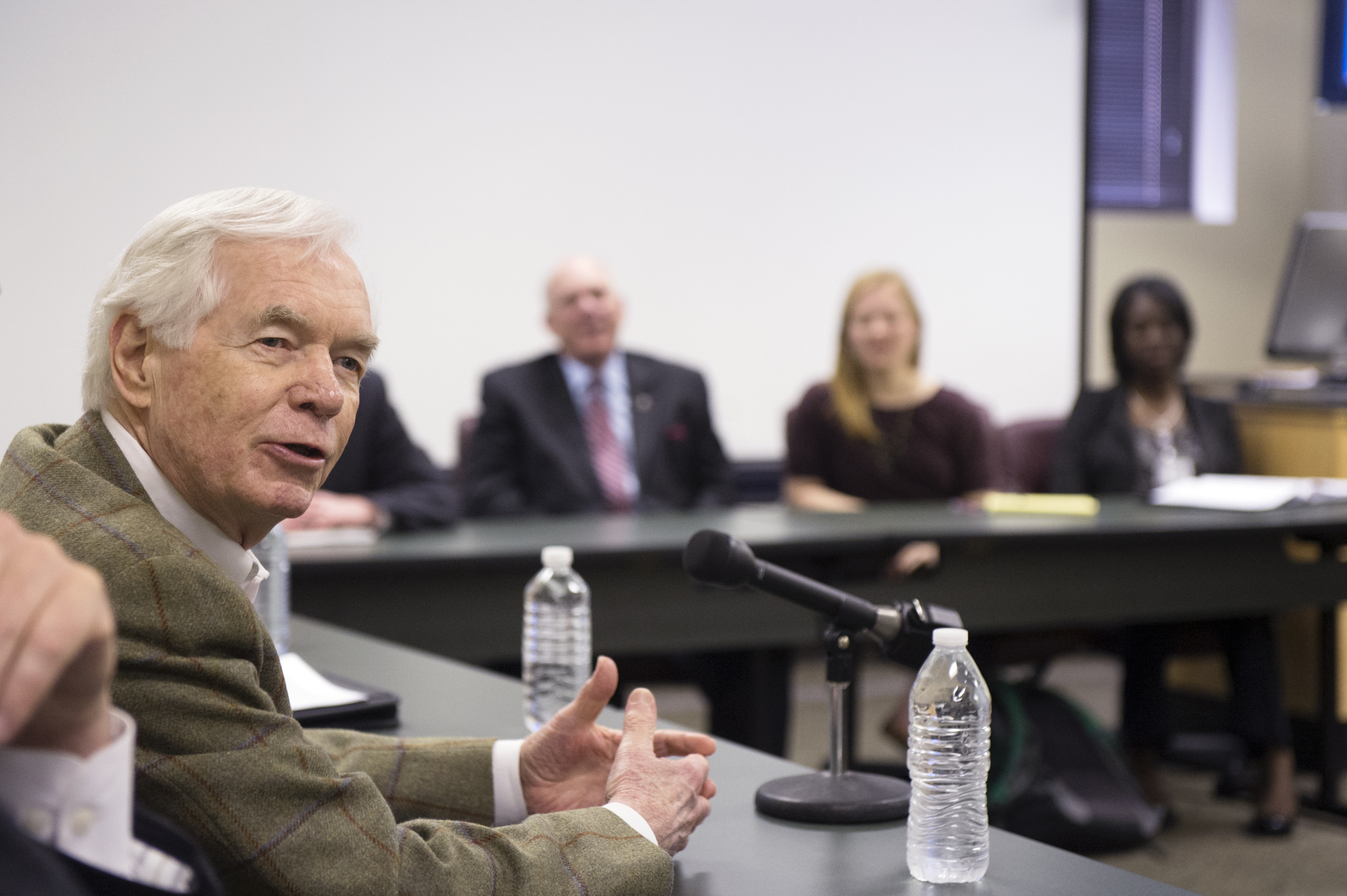Contact: Allison Matthews

Photo by: Beth Wynn
The state's senior U.S senator was at Mississippi State Wednesday [Feb. 19] to participate in a roundtable discussion of U.S. farm policy with some of the university's top agriculture, forestry and veterinary medicine majors.
Sen. Thad Cochran's meeting with undergraduate and graduate students, some of whom are his former interns, heard the veteran lawmaker explain the challenging process of writing and gaining successful passage of the recently passed farm bill. The multi-year piece of authorizing legislation that governs an array of programs under the U.S. Department of Agriculture recently was completed after nearly three years of deliberations.
In January 2013, Cochran was selected to serve as ranking member on the Senate Agriculture Committee. The House of Representatives and the Senate passed separate versions of the farm bill in summer 2013, and the farm bill conference committee formally began resolving differences between the two bills in late October, Cochran said. The Agricultural Act of 2014 was signed into law earlier this month.
Cochran explained to students that the law entails a great variety of issues and programs related to the country's agricultural interests, from production agriculture to trade opportunities to nutrition assistance programs.
When asked about regional battles over the focus of the farm bill between midwestern and southern farmers, Cochran said getting input from constituents helped set the priorities.
"We needed to take into account the financial benefits for production agriculture and the impact on trade opportunities," he said.
The comprehensive nature and overall impact of the bill helped it enjoy bipartisan support, but the challenge of balancing competing interests took diligent work from all who were involved with drafting the final legislation, Cochran said.
Regarding the length of time the bill required for passage, Cochran said he expects future farm legislation will be equally challenging to finalize, requiring painstaking and meticulous compromise.
"You remember the old saying, 'This is not a horse that is soon hurried,'" Cochran said.
Keith Coble, an MSU Giles Distinguished Professor of Agricultural Economics who also served as chief economist for Cochran related to his work on the farm bill conference committee, was on hand to give some opening remarks to the students and background information about the extensive diplomacy that Cochran and his Senate peers on the committee employed to finalize the act.
"It was extremely difficult with a great deal of negotiation. There was a great deal of weighing the interests of different groups," Coble said. He added that now comes the monumental task of implementation of the new law.
Ranked by the National Science Foundation as a top research and development university, MSU is in the top 10 for agricultural sciences research. It is also home of the state's only veterinary college.
Gregory Bohach, MSU's vice president for agriculture, forestry and veterinary medicine, said Cochran's visit with students was important in conveying the real-life process of affecting farm policy in the U.S.
"MSU's USDA Research and Extension funding for capacity building and grants and contracts are authorized by the farm bill. Also, the well-being of our stake holders in the farming community and general public is impacted directly by the language in the farm bill," Bohach added.
For more information about Mississippi State University, see www.msstate.edu.